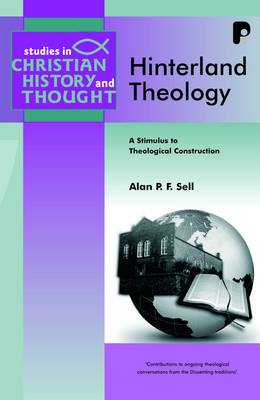Studies in Christian History and Thought
2 total works
"What is the Gospel, and how is it to be commended? This question encapsulates the running theme of this collection of papers. In five essays, Professor Sell discusses some Puritans, Cambridge Platonists, Quakers and critics of deism and pantheism who sought to articulate the Gospel in the intellectual environment in which they had been set. Their underlying concerns are of continuing relevance in current ecumenical discussion, as are questions of doctrinal change and development, the subjects of two further papers. A paper on spirituality echoes some of the concerns of the Separatists, Platonists, and Quakers, but views them in relation to the widespread interest in the topic at the present time. Two papers concern the ways in which the Gospel is shared in ecumenical circles, with special reference to the Holy Spirit, ecclesiology, and the Reformed contribution to interconfessional discussion. A bibliographical survey of Reformed theology in twentieth-century Britain shows the range of interest within one ecclesiastical tradition, while such wider issues as contextual theology, inclusivism, and the peril of sectarianism are discussed in a further paper The book concludes with an attempt to answer the question, What is involved in proclaiming the Gospel of reconciliation today?"
Alan Sell maintains that systematic and constructive theology are best understood as the product of a conversation with the biblical writers, the heritage of Christian thought and the current intellectual environment. The conversation will benefit if the voices of hinterland writers are heard as well as those of the theological and philosophical 'giants'. In this book, ten hinterland theologians associated with English Dissent are introduced and their writings are discussed. Thomas Ridgley, Abraham Taylor and Samuel Chandler wrote in the wake of the Toleration Act of 1689; George Payne and Richard Alliott responded to the Enlightenment and the Evangelical Revival; D. W. Simon, T. Vincent Tymms and Walter F. Adeney took account of modern biblical criticism, and Robert S. Franks and Charles S. Duthie respectively lived through and followed the heyday of liberal theology. The study reveals both adjustments and time-lags in theology, and shows how hinterland theologians can stimulate the ongoing conversation concerning theological method, philosophico-theological relations, the Trinity, the atonement and ecumenism.

